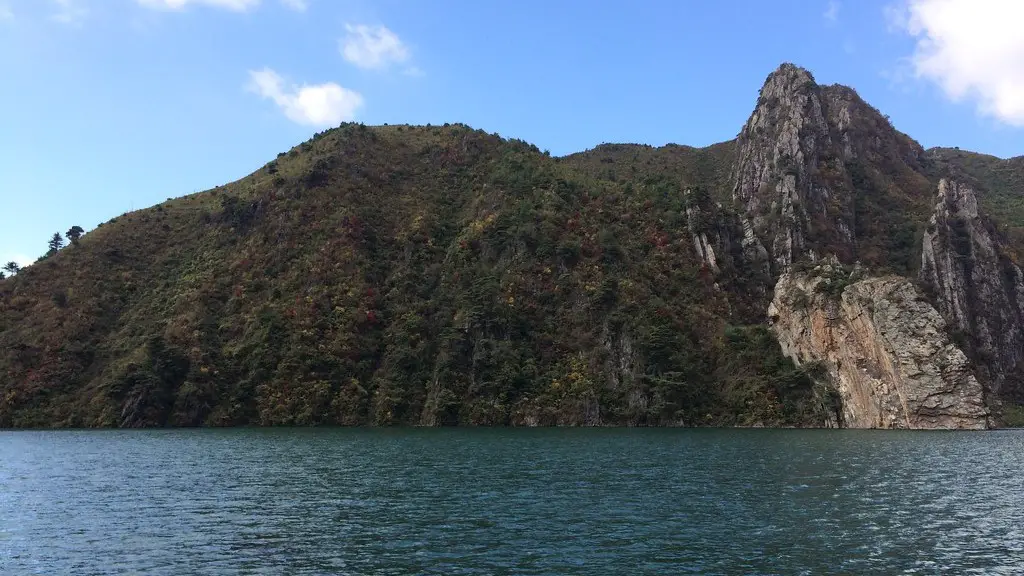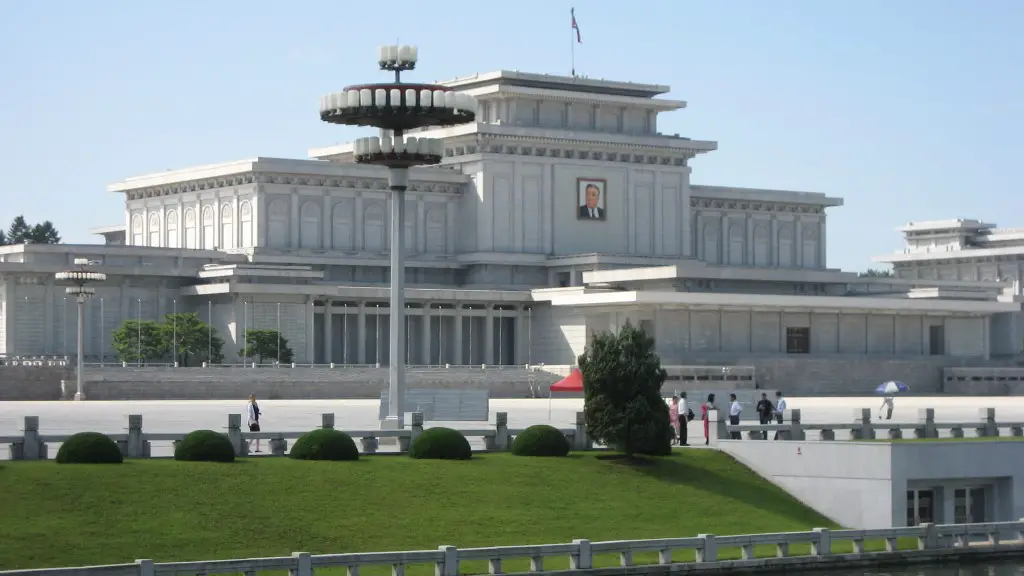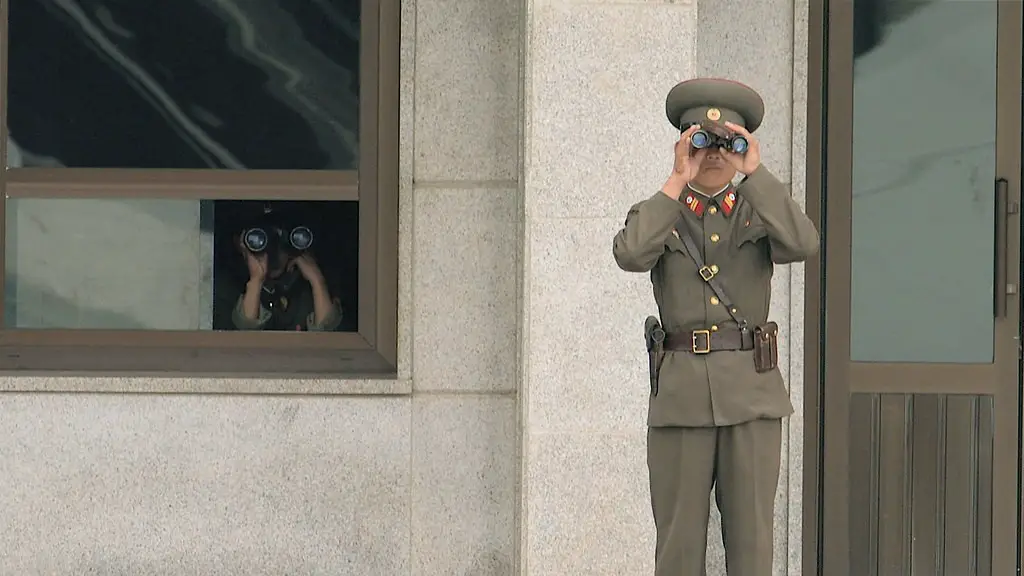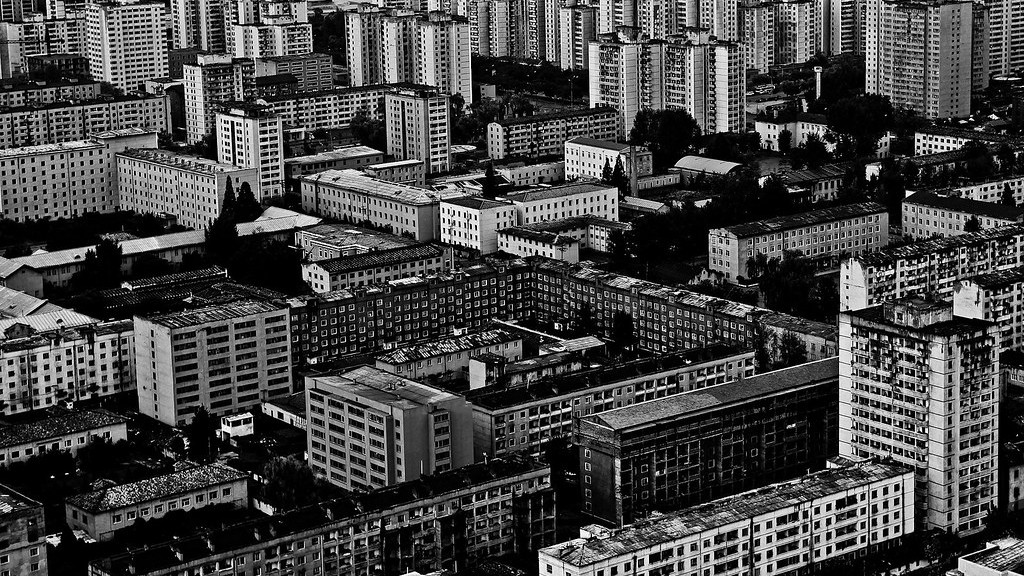Since the 1950s, North Korea has been known to operate concentration camps, also known as gulags, where political prisoners and their families are forced to work in conditions that are often brutal and life-threatening. In recent years, there have been reports of increasing numbers of people being sent to these camps, and of the conditions inside the camps becoming even more harsh.
There is no definitive answer to this question. Some researchers and human rights organizations believe that there are concentration camps in North Korea, while others dispute this claim. Additionally, it is difficult to obtain reliable information about the alleged camps due to the secretive and repressive nature of the North Korean government.
What happens to North Korean prisoners?
The North Korean prison system is well-known for its brutality. Former inmates who have escaped the country have said that prisoners are poorly-fed, live in crowded cells, and are subjected to torture, backbreaking labor, and sexual abuse.
The two large-scale facilities known as “prison camps” in English are termed kwan-li-so and kyo-hwa-so in Korean. There are four known political prison camps and over twenty prison labor camps spread throughout North Korea. The conditions in these camps are extremely brutal, and prisoners are subject to forced labor, starvation, and torture. Many prisoners do not survive their time in these camps.
What is Camp 14 in North Korea
Kaechon Internment Camp is a labor camp in North Korea for political prisoners and descendants of alleged criminals. The official name for the camp is Kwan-li-so (Penal-labor colony) No 14. The camp is commonly known as Camp 14.
The kwan-li-so, or political prison camps, are the most notorious of the labor camps in North Korea. These camps are used to house political prisoners, who are often subjected to brutal treatment and conditions. The kwo-hwa-so, or reeducation labor camps, are slightly less brutal, but still maintain harsh conditions. These camps are used to house prisoners who have been convicted of crimes such as smuggling or dissent.
What happens if you get caught escaping North Korea?
If the defectors are caught in China, they are repatriated back to North Korea, where rights groups say they often face harsh interrogations and years of punishment, or even death, in kwalliso prison camps (such as the Pukch’ang camp), or in kyohwaso reeducation camps (such as the Chungsan camp or Chongo-ri camp).
The determination of whether or not to suspend a sentence is made by the court on a case-by-case basis. Factors that the court may consider include the severity of the crime, the age and criminal history of the offender, and the likelihood of recidivism.
Is there a US base in North Korea?
The base is located in Pyeongtaek, South Korea, about 40 miles (64 km) south of Seoul. It covers more than 14,000 acres (57 km2) and contains more than 4,500 buildings and 39,000 housing units. The base is home to the U.S. Army’s 2nd Infantry Division and the Republic of Korea Army’s Capital Mechanized Infantry Division.
North Korean citizens usually cannot freely travel around the country or travel abroad. Emigration and immigration are strictly controlled by the government. This limits the freedom of movement for North Koreans and makes it difficult for them to leave the country.
Who is North Korea’s closest ally
The China-North Korea friendship is often considered to be one of the strongest and most special relationships in the world. The two countries have a long history, and China is often considered to be North Korea’s closest ally. The two countries have a mutual aid and co-operation treaty, which is currently the only defense treaty either country has with any nation.
Foreigners can enter North Korea either by air or by train through the city of Pyongyang. Those who wish to travel by train must first obtain a visa from the North Korean government, which can be a difficult process. Once in Pyongyang, visitors are usually only allowed to explore certain areas of the city and are not permitted to leave the city without a guide.
What is the 3 generation punishment rule?
The Three-generation punishment is a law that was created in North Korea to prevent people from escaping from prison. If anyone commits a crime, not only they will be punished, but also their grandparents, parents and children. This is a terrible law that has likely caused a lot of pain and suffering for many families.
Smoking has been a part of North Korean culture for many years, but recently it has become more socially acceptable for men to smoke. However, women smoking is still considered taboo. All three of North Korea’s leaders – Kim Jong-un, his father Kim Jong-il and grandfather Kim Il-sung – have been smokers. This change in attitude towards smoking is likely due to the influence of Western culture.
Does North Korea punish families
The “association system” is a practice in North Korea under which three generations of a political offender’s family can be summarily imprisoned or executed. This practice is based on the belief that the family member is likely to share the same political views as the offender, and therefore they must be dealt with in the same manner. Numerous testimonies of North Korean defectors confirm the existence of this practice, which is used as a way to control the population and prevent dissent.
Since his escape in 2005, Shin has dedicated his life to exposing the reality of North Korea’s brutal prison camps, where political prisoners are tortured and killed. Now, for the first time, the world can see these gulags in Google Maps.
This is a major step forward in shining a light on North Korea’s human rights abuses. For too long, the North Korean government has been able to operate these camps in secret, with no accountability. Now, thanks to Google Maps, the world can see what these prisons look like and start to hold the North Korean government accountable for their crimes.
Does North Korea have pads and tampons?
Sanitary pads and tampons are not available in the North Korean market. Women are expected to use old-school, reusable pads which they are supposed to wash after each use. This is obviously not ideal, as it can lead to infection and other health problems. Hopefully, North Korea will one day catch up to the rest of the world in this regard and make sanitary products more readily available to women.
The Democratic People’s Republic of Korea, more commonly known as North Korea, has strict laws about what you can bring into the country. It is illegal to bring in religious, pornographic or political items. All published material and electronic devices must be declared when you arrive. It is also illegal to knowingly or unknowingly possess items that breach North Korean law.
Warp Up
Yes, North Korea has concentration camps.
The answer to this question is not clear. While there is certainly evidence of forced labor camps in North Korea, it is not clear if these can be classified as concentration camps in the traditional sense. Therefore, more research is needed on this topic in order to arrive at a definitive conclusion.





